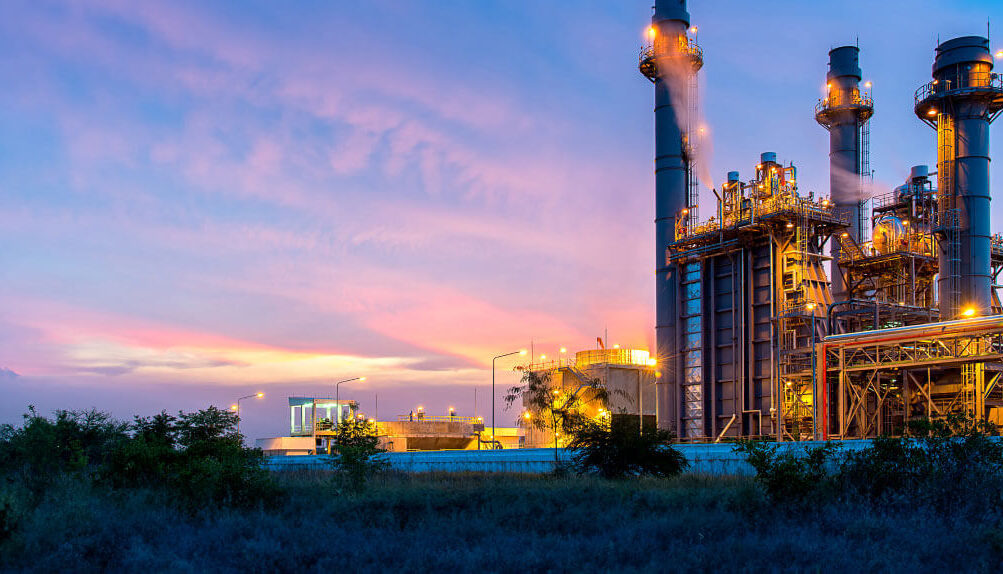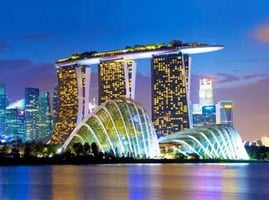Why Singapore's Vulcan Shield Global is investing S$1.3 billion in Hungary
In a world where geopolitical tensions continue to reshape global investment flows, a remarkable story is unfolding in the heart of Europe—one that every sophisticated Singaporean investor should understand. Singapore-based Vulcan Shield Global (VSG) has just announced what may be the largest Singaporean investment in Hungarian history: a staggering S$1.3 billion commitment that's creating 2,500 jobs and establishing Europe's first major alumina fibre production hub in the southeastern city of Békéscsaba.
For Singapore's high-earning professionals, investors, and business owners, this isn't merely another corporate expansion story. It's a masterclass in strategic geographic diversification and a potential harbinger of where smart money is moving in 2025.

The Numbers Behind the Headlines
Let's start with the stark arithmetic. VSG's investment comprises three phases: an initial S$260 million facility for ceramic fibre textiles, followed by a S$205 million plant for alumina continuous fibres, and finally, the crown jewel—a S$840 million facility dedicated to technical textiles for catalytic converters. To put this in perspective, at current exchange rates (approximately 389 HUF to 1 EUR, and 1.35 SGD to 1 EUR), we're looking at roughly 280 billion Hungarian forints flowing into a region that's been thirsting for high-tech investment.
"The specialist of extreme heat-resistant advanced alumina fibre products will implement three large-scale investments in the capital of Békés County, with a combined value of EUR 700 million," confirms the Hungarian Investment Promotion Agency (HIPA).
But here's where it gets particularly interesting for our audience: VSG isn't just another manufacturing company chasing cheap labour. This Singapore-based firm specialises in advanced materials that can withstand temperatures up to 1,600°C—critical components for aerospace, automotive, and energy sectors that form the backbone of any advanced economy.

Decoding Hungary's Investment Magnetism
What makes Hungary so compelling that it convinced a Singapore-based materials technology leader to establish its first European beachhead there? The answer lies in a combination of factors that savvy investors have been quietly exploiting for years.
First, consider Hungary's tax competitiveness. The country maintains the European Union's lowest corporate tax rate at 9%—a figure that should make any Singapore investor sit up and take notice, given our own jurisdiction's emphasis on tax efficiency. "Hungary operates one of the most competitive tax systems in the European Union. Corporate income tax (CIT) is set at 9%, the lowest in the EU," notes recent analysis by international advisory firm Aliant Plus.
Second, there's the human capital equation. Hungary produces over 70,000 graduates annually in engineering, construction, and manufacturing—precisely the technical talent pool that advanced materials companies require. This isn't merely about cost arbitrage; it's about accessing a skilled workforce that can execute sophisticated manufacturing processes at European quality standards.
But perhaps most crucially for Singapore investors, Hungary offers something invaluable: unfettered access to the European Union's massive market whilst maintaining strategic autonomy from Brussels' more dirigiste impulses.
The Broader Asian Investment Surge
VSG's investment isn't occurring in isolation. Hungary has become something of a magnet for Asian capital, with China, South Korea, and Japan collectively responsible for nearly 80% of the country's new foreign direct investment in 2024. This represents a fundamental shift in global capital allocation patterns that sophisticated investors ignore at their peril.
According to HIPA's latest data, the agency achieved "outstanding results in 2024, with investment capital inflow into the Hungarian economy exceeding the EUR 10 billion mark for the second year in a row." The Hungarian Investment Promotion Agency guided 77 projects worth S$19.2 billion in 2024, creating 18,500 new jobs.
István Joó, HIPA's CEO, captures the strategic thinking behind this trend: "Hungary aims to act as a bridge between Western car manufacturers and Asian battery producers, which is in line with the policy of economic connectivity and economic neutrality."

Singapore-Hungary: A Natural Partnership
For Singapore investors specifically, Hungary presents unique advantages that align with our nation's own strategic positioning. Both countries share what a recent report describes as "structural similarities, particularly in their heavy reliance on foreign companies, which account for 70 to 80 per cent of the country's exports".
Lennon Tan, president of the Singapore Manufacturing Federation, puts it succinctly: "The presence of capable local professionals, paired with well-developed infrastructure, allows our companies to expand and innovate without the financial strain typically associated with entering Western European markets."
Moreover, Singapore companies can leverage the EU-Singapore Free Trade Agreement through their Hungarian operations, eliminating most tariffs and reducing non-tariff barriers—a strategic advantage that Vulcan Shield Global is undoubtedly exploiting.
The numbers support this growing partnership: bilateral trade between Singapore and Hungary exceeded S$1.9 billion in 2024, with Singapore companies employing around 7,000 workers in Hungary.

Investment Implications for Singapore's Affluent
For Singapore's high-earning professionals and investors, several strategic implications emerge from this case study:
Geographic Diversification Beyond Traditional Markets: Whilst many Singapore investors focus on established Western markets or familiar Asian territories, Central and Eastern Europe offers compelling risk-adjusted returns with lower correlation to traditional holdings.
Sector Rotation Opportunities: VSG's focus on advanced materials for aerospace, automotive, and energy sectors reflects broader trends towards industrial upgrading and decarbonisation. These aren't sunset industries; they're the foundation of the next industrial revolution.
Currency Considerations: With the Hungarian forint trading at approximately 389 HUF to 1 EUR, there may be natural hedging opportunities for Singapore investors with EUR exposure, particularly given Hungary's inevitable convergence towards eurozone standards over the long term.
Regulatory Arbitrage: Hungary's 9% corporate tax rate, combined with EU market access, creates compelling structures for Singapore-based multinationals seeking European expansion without the regulatory burden of Western European jurisdictions.

The Broader European Context
Hungary's success in attracting Asian investment occurs against a backdrop of broader European challenges. FDI into Europe declined for the second consecutive year in 2024, falling by 5% and reaching its lowest level in nine years, according to EY's European Attractiveness Survey.
Yet this aggregate decline masks significant regional variation. Central and Eastern European countries, led by Hungary, are bucking the trend. This divergence reflects a fundamental shift: whilst Western Europe grapples with regulatory complexity and political uncertainty, countries like Hungary are offering clear value propositions to international investors.
Risks and Considerations
Of course, no investment thesis is without risks. Hungary's political landscape remains subject to EU pressures, particularly around rule-of-law concerns that could affect future investment climates. Currency volatility represents another consideration, though this can be hedged through appropriate financial instruments.
Additionally, Hungary's heavy reliance on foreign investment—whilst currently advantageous—could prove vulnerable to sudden capital flight during global risk-off periods. Sophisticated investors must weigh these tail risks against the compelling fundamental attractions.
Looking Ahead: The 2025 Investment Landscape
As we progress through 2025, several trends suggest that the Hungary-Singapore investment corridor will only strengthen. Singapore's foreign direct investment outflows reached S103 billion in 2024, reflecting our economy's continued evolution towards higher-value activities and geographic diversification.
The Vulcan Shield Global investment represents more than a single corporate decision; it's a template for how Singapore's most sophisticated companies are thinking about European expansion. By choosing Hungary as their European manufacturing hub, VSG has demonstrated that the old paradigms—expensive Western European locations, high regulatory burdens, limited fiscal flexibility—no longer represent optimal strategies.
For Singapore investors, this creates both opportunity and imperative. Those who recognise and act upon shifting global investment patterns whilst they're still emerging—rather than waiting for consensus validation—typically achieve superior risk-adjusted returns.

The Bottom Line
Vulcan Shield Global's S$1.3 billion Hungarian investment isn't just about advanced materials or manufacturing efficiency. It's about recognising where value is being created in an increasingly multipolar global economy. For Singapore's high-earning professionals, investors, and business owners, the message is clear: sometimes the most compelling opportunities emerge not in the obvious places, but in the strategic interstices between established powers.
In an era where geographic diversification has become essential rather than optional, Hungary's combination of EU market access, competitive taxation, skilled labour, and political pragmatism creates a compelling value proposition. The question isn't whether more Singapore capital will follow VSG's lead into Central Europe—it's whether you'll be ahead of the curve or following the crowd.
As István Joó noted, these investments "significantly contribute to making 2025 the year of economic growth, building on Hungary's principle of economic neutrality." For Singapore investors who understand the implications, 2025 may indeed prove to be a pivotal year—not just for Hungary, but for anyone savvy enough to recognise where the next wave of value creation is emerging.
Sources and References:
- Hungarian Investment Promotion Agency (HIPA)
- HIPA 2024 Investment Results
- Eurasia Magazine - Hungary Gateway Analysis
- U.S. State Department Investment Climate Statement - Hungary
- Singapore Statistics - Foreign Direct Investment
- Vulcan Shield Global Corporate Information
- EY European Attractiveness Survey 2025
Currency conversions based on September 2025 rates: 1 EUR = 1.35 SGD, 1 USD = 1.87 SGD
Let us know what you think about this topic, and what do you want to hear next.
You can now be our community contributor and make a pitch to have your favourite personality be on our show.
Join our community group and drop us your insights on this topic.

-4.png?width=50&name=Square%20(2)-4.png)








Let us know what you think of this post